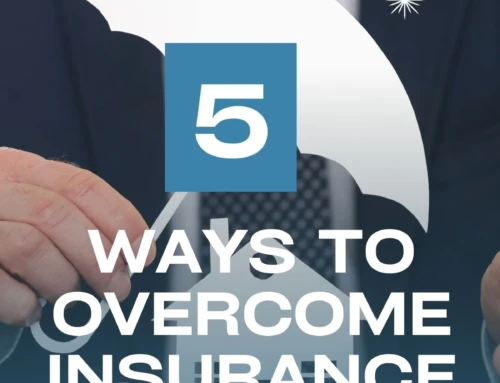When to Waive Your Financing Contingency
This guide explains the following:
- Understanding the financing contingency
- The benefits of waiving the financing contingency
- Factors to consider before waiving the financing contingency
- Tips for a successful contingency waiver
- FAQ about waiving the financing contingency
Here’s a closer look at each.
Understanding the Financing Contingency
As a homebuyer or seller, you may have come across the term “financing contingency” during your real estate journey. A financing contingency is a clause in the purchase agreement that allows the buyer to back out of the deal if they are unable to secure financing. It offers protection and peace of mind to homebuyers, ensuring that they have an exit strategy if they can’t obtain a loan.
The Benefits of Waiving the Financing Contingency
Waiving the financing contingency can be a strategic move in a competitive real estate market. By removing this contingency, you signal to the seller that you’re serious and committed to the purchase. It strengthens your offer and may give you an edge over other potential buyers who still have the contingency in place. In a seller’s market where multiple offers are common, waiving the financing contingency can make your offer more appealing.
Factors to Consider Before Waiving the Financing Contingency
Waiving the financing contingency is a significant decision that requires careful consideration. Here are some factors to think about before proceeding:
Financial Stability: Ensure that your financial situation is secure and you have a high degree of confidence in obtaining a loan. Consult with a trusted mortgage lender to assess your eligibility and the likelihood of securing financing within the specified timeframe.
Pre-Approval: Obtain a pre-approval letter from your lender. This indicates that you’ve gone through the preliminary approval process and have a lender’s commitment to provide financing, subject to underwriting and property appraisal.
Cash Reserves: Assess your cash reserves to determine if you have enough funds to cover unexpected costs or a potential increase in the down payment requirement. Waiving the financing contingency means you’ll be obligated to purchase the property even if your loan falls through.
Market Conditions: Evaluate the current market conditions and the level of competition you’re facing. If it’s a seller’s market with limited inventory and multiple offers, waiving the financing contingency might be more advantageous. However, in a buyer’s market with ample inventory, you may have more negotiating power and less need to waive the contingency.
Tips for a Successful Contingency Waiver
If you decide to waive the financing contingency, here are some tips to help you navigate the process successfully:
Consult with Professionals: Seek guidance from your real estate agent and mortgage lender. They can provide valuable insights and help you make an informed decision based on your specific circumstances.
Understand the Risks: Be aware of the potential risks associated with waiving the financing contingency. Discuss these risks with your agent and lender to fully understand the implications.
Thoroughly Review the Contract: Carefully read and understand all the terms and conditions of the purchase agreement. Ensure that you’re comfortable with the contractual obligations and the timeline for securing financing.
Communicate with the Seller: Openly communicate your intent to waive the financing contingency with the seller. Transparency and clear communication can help build trust and strengthen your offer.
FAQ About Waiving the Financing Contingency
Check out these commonly asked questions about waiving the financing contingency. If you don’t see the answers here, please call our office, and we’ll get you the information you need.
Q: What happens if I waive the financing contingency but can’t secure financing?
A: If you’re unable to obtain financing after waiving the contingency, you may risk losing your earnest money deposit or face potential legal consequences. It’s crucial to ensure that you have thoroughly assessed your financial situation and have a high degree of confidence in obtaining the necessary financing before waiving the contingency.
Q: Can I still conduct inspections and appraisals after waiving the financing contingency?
A: Yes, you can still conduct inspections and appraisals even after waiving the financing contingency. These are separate contingencies that protect your interests as a buyer. It’s important to complete these inspections and appraisals to ensure the property is in good condition and valued appropriately.
Q: Are there any alternatives to waiving the financing contingency?
A: Yes, there are alternatives you can explore if you’re not comfortable waiving the financing contingency. One option is to reduce the contingency period to a shorter timeframe, allowing you to secure financing more quickly. Another option is to provide a larger earnest money deposit to demonstrate your commitment to the purchase.
Q: Should I consult with an attorney before waiving the financing contingency?
A: While it’s not a requirement, consulting with an attorney can provide an extra layer of protection and ensure that you fully understand the legal implications of waiving the financing contingency. An attorney can review the purchase agreement and offer guidance based on your specific situation.
Q: Can I reinstate the financing contingency after waiving it?
A: Generally, once you waive the financing contingency, it’s challenging to reinstate it. However, if you encounter unforeseen circumstances or challenges with securing financing within the agreed-upon timeline, you can discuss the situation with the seller and see if they are willing to negotiate or modify the terms of the agreement.
Q: Is waiving the financing contingency always the right decision in a competitive market?
A: Waiving the financing contingency is not a one-size-fits-all solution and should be carefully considered on a case-by-case basis. While it can strengthen your offer in a competitive market, it’s essential to weigh the potential risks and ensure that you’re financially prepared to proceed without the safety net of the contingency.
Deciding whether to waive the financing contingency is a significant step in the home buying process. By understanding the benefits, assessing your financial situation, and considering market conditions, you can make an informed decision that aligns with your goals and circumstances. Remember to consult with professionals, review the contract thoroughly, and communicate openly with the seller to ensure a smooth transaction. Ultimately, the decision to waive the financing contingency rests in your hands, and with careful consideration, you can navigate the process successfully.
 $469,000
Active
$469,000
Active
800 S Dakota Avenue 221 Tampa, Florida
1 Beds 1 Baths 604 SqFt
 $849,000
Active
$849,000
Active
18014 Cozumel Isle Drive Tampa, Florida
5 Beds 3 Baths 2,872 SqFt 0.210 Acres
 $1,300,000
Active
$1,300,000
Active
777 N Ashley Drive 2601 Tampa, Florida
2 Beds 2 Baths 1,183 SqFt
 $759,900
Active
$759,900
Active
11606 Navel Orange Way Tampa, Florida
4 Beds 2 Baths 1,974 SqFt 0.150 Acres
Are You Buying or Selling a Home in Tampa Bay?
You can use this website to search homes for sale in Tampa Bay and all its communities. Our site is directly connected to the Tampa Bay MLS, and we update our listings every hour. You can even use our site to create your own account and get emails as soon as a new home hits the market, price change alerts and so much more.
While you’re here, check out these listings:
Join our team
Please fill out the below form completely and include your resume & cover letter and we will get back to you quickly!














